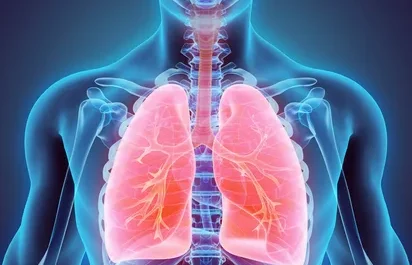A recent study conducted by clinicians and researchers at National Jewish Health has shed light on the effectiveness of COVID-19 vaccines in patients with underlying lung conditions such as asthma, chronic obstructive pulmonary disease (COPD), and interstitial lung disease (ILD). The findings demonstrate that nearly half of respiratory patients exhibit lower levels of vaccine-specific antibodies, B cells, and T cells compared to healthy individuals. This decreased immune response suggests that individuals with underlying lung conditions may be at a lower level of protection against COVID-19. Understanding the reasons behind this reduced response can provide healthcare professionals with valuable insights to tailor treatments for these patients accordingly.
While most studies on COVID-19 vaccines have primarily focused on their efficacy in healthy individuals, R. Lee Reinhardt, PhD, Associate Professor in the Department of Immunology and Genomic Medicine and senior author of the study published in the European Respiratory Journal-Open Research, highlights the lack of available data on whether these vaccines offer the same level of protection for individuals with respiratory conditions.
To assess the antibody, B-cell, and T-cell responses in patients with respiratory conditions compared to healthy controls, researchers examined samples obtained from patients participating in the National Jewish Health Biobank research database. The investigators assessed vaccine-specific serum antibody levels, as well as the levels and functionality of B cells and T cells in the blood samples. The results consistently showed that patients with lung diseases were significantly more likely to generate a suboptimal response to the vaccine compared to their healthy counterparts.
Dr. Reinhardt emphasizes the importance of gaining a comprehensive understanding of the immune response in all individuals, not just the healthy population, as COVID-19 continues to be a prevailing concern. He points out that the future may bring a potential winter surge, and it is crucial to comprehend how the immune response impacts everyone.
The findings of this study have significant implications for individuals with underlying lung conditions. Recognizing the lower vaccine response in this population allows healthcare professionals to tailor their approaches to treatment and prevention. Additional research is necessary to further investigate why individuals with lung conditions exhibit reduced immune response to COVID-19 vaccines. This can potentially lead to the development of targeted interventions to enhance vaccine effectiveness in this vulnerable population.
Moreover, the study reinforces the importance of vaccination for individuals with respiratory conditions. Although the vaccine may have a reduced response in these patients, it still provides some level of protection against severe illness and hospitalization due to COVID-19. Vaccination remains a critical tool in mitigating the risk of infection, especially in those with underlying health conditions.
Furthermore, these findings highlight the need for inclusion of individuals with respiratory conditions in future COVID-19 vaccine studies. By expanding the scope of research to encompass a wider range of individuals, healthcare professionals can gain valuable insights into vaccine efficacy across different populations. This inclusive approach will contribute to the development of more targeted and effective preventive measures against COVID-19.
As the COVID-19 pandemic continues to evolve, further research and understanding of vaccine responses in individuals with underlying lung conditions will be vital for ensuring the well-being and protection of this vulnerable population. It is imperative to address the unique challenges and needs of these individuals to optimize their COVID-19 prevention and management strategies.
*Note:
- Source: Coherent Market Insights, Public sources, Desk research
- We have leveraged AI tools to mine information and compile it



